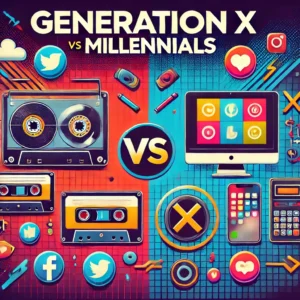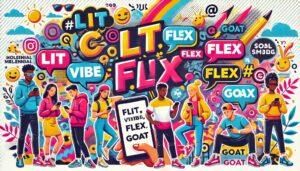Life Style
Exploring the Millennials Years: Defining an Influential Generation
The term “millennials years” often sparks curiosity and conversation. It refers to the period defining the millennial generation, also known as Generation Y or simply millennials. Understanding the millennial generation, their characteristics, and their impact on the world is crucial in today’s society. This article delves into the millennial years, exploring the millennials age and the defining traits of this influential cohort.
What are the Millennial Years? Defining the Generation
To understand the millennial years, we first need to establish the timeframe. Demographers and researchers generally define the millennial generation as those born between 1981 and 1996. These millennial years mark a significant period in history, bridging the late 20th century and the early 21st century. People within this age group have witnessed remarkable technological advancements and societal shifts.
This timeframe of millennial years is not arbitrary. It encapsulates a generation that came of age around the turn of the new millennium. They experienced key historical events during their formative years, shaping their perspectives and values. These experiences distinguish them from previous and subsequent generations. The millennials age range, therefore, becomes a lens through which we can understand their unique journey.
Key Characteristics of the Millennial Generation
The millennial generation is known for several defining characteristics. These traits have been shaped by the unique historical and technological context of their millennial years. Let’s explore some of the most prominent features:
1. Digital Natives:
Perhaps the most defining characteristic of the millennial generation is their status as digital natives. They grew up alongside the rapid expansion of the internet, personal computers, and mobile phones. For millennials, technology isn’t something they adopted later in life; it has always been an integral part of their world.
During their millennial years, the internet moved from dial-up connections to broadband. Social media platforms emerged and transformed communication. This constant exposure to technology has made millennials comfortable with digital tools and online platforms. They are adept at navigating the digital landscape and leveraging technology for communication, information, and entertainment.
2. Tech-Savvy and Adaptable:
Building on their digital native status, millennials are remarkably tech-savvy. They are comfortable using various technologies and adapting to new digital trends quickly. Throughout their millennial years, they witnessed the evolution of technology. This constant change has instilled in them a sense of adaptability and a willingness to embrace innovation.
This tech-savviness extends beyond just using technology for personal purposes. Millennials are often sought after in the workplace for their digital skills and their ability to navigate complex technological systems. Their millennials age has equipped them with the tools to thrive in an increasingly digital world.
3. Socially Conscious and Values-Driven:
The millennial generation is often characterized as being socially conscious and values-driven. During their millennial years, they witnessed global events like the 9/11 attacks, the Iraq War, and the 2008 financial crisis. These events fostered a sense of social awareness and a desire to make a positive impact on the world.
Millennials often prioritize ethical considerations and social responsibility in their choices. They are more likely to support businesses and brands that align with their values. Issues like climate change, social justice, and equality are often central to their concerns. This focus on values is a key aspect of the millennials age and their worldview.
4. Collaborative and Team-Oriented:
In the workplace and in social settings, millennials are generally known for being collaborative and team-oriented. Their millennial years were often marked by emphasis on teamwork in education and extracurricular activities. This has translated into a preference for collaboration and shared responsibility.
Millennials often thrive in environments that encourage open communication and teamwork. They value diverse perspectives and believe in collective effort to achieve common goals. This collaborative spirit is a significant contribution of the millennial generation to the modern workplace and society.
5. Seeking Work-Life Balance and Flexibility:
Unlike previous generations who may have prioritized job security and long tenures with a single company, millennials often seek work-life balance and flexibility. During their millennial years, they observed the demanding work cultures of previous generations and sought a different approach.
Millennials value experiences and personal time alongside their professional lives. They are often drawn to companies that offer flexible work arrangements, remote work options, and a focus on employee well-being. This emphasis on work-life balance is a defining characteristic of the millennials age and their approach to career and life.
6. Experiential and Focused on Personal Growth:
The millennial generation values experiences and personal growth. During their millennial years, they were often encouraged to pursue passions and seek enriching experiences beyond traditional markers of success. This has led to a generation that values travel, learning new skills, and pursuing personal development.
Millennials often prioritize experiences over material possessions. They seek out opportunities for learning, travel, and personal enrichment. This focus on experiences and personal growth is a key driver for many within the millennials age group.
The Impact of the Millennial Years on Society
The millennial generation has had a significant impact on various aspects of society. Their millennial years have shaped their perspectives and driven changes in culture, technology, and the economy. Here are some key areas of impact:
1. Transforming the Workplace:
Millennials have significantly transformed the workplace. Their tech-savviness, collaborative nature, and desire for work-life balance have pushed companies to adapt. During the millennial years and onward, businesses have had to reconsider traditional work models.
This includes the rise of remote work, flexible hours, and a greater emphasis on company culture and employee well-being. Millennials have advocated for more inclusive and diverse workplaces. Their influence has led to a more employee-centric approach in many organizations. The millennials age has truly reshaped the modern work environment.
2. Driving Technological Innovation:
As digital natives, millennials have been at the forefront of driving technological innovation. Their comfort with technology and their demand for user-friendly digital solutions have fueled the growth of the tech industry. Throughout their millennial years, they have been early adopters and active participants in the digital revolution.
Millennials have contributed to the development of social media, mobile apps, and countless other digital platforms. Their influence is evident in the way we communicate, consume information, and interact with the world today. The millennial generation is undeniably a driving force behind ongoing technological advancements.
3. Shaping Consumer Trends:
Millennial consumer preferences have significantly shaped market trends. Their values-driven approach and focus on experiences have led to changes in consumer behavior. During their millennial years and beyond, businesses have had to adapt to cater to millennial demands.
This includes the rise of conscious consumerism, where ethical sourcing, sustainability, and social responsibility are important factors. Millennials are also drawn to brands that offer authentic experiences and engage with them on a personal level. The millennials age has redefined what businesses need to offer to succeed in the modern marketplace.
4. Influencing Social and Political Discourse:
The millennial generation is actively engaged in social and political discourse. Their social consciousness and digital fluency have amplified their voices in public conversations. Throughout their millennial years, they have utilized online platforms to organize, advocate, and raise awareness about issues they care about.
Millennials are often at the forefront of movements for social justice, environmental protection, and political reform. Their digital activism and their willingness to challenge traditional norms have made them a powerful force in shaping social and political landscapes. The millennials age has brought a new wave of civic engagement and activism.
Criticisms and Stereotypes of the Millennial Generation
Despite their many positive contributions, the millennial generation has also faced criticisms and stereotypes. Some common stereotypes include being labeled as “entitled,” “lazy,” or “narcissistic.” It’s important to understand that these are broad generalizations and do not accurately represent the entire generation.
During their millennial years, they have been subjected to economic challenges and societal pressures that have shaped their experiences. It’s crucial to move beyond simplistic stereotypes and acknowledge the diverse realities within the millennial generation. Judging an entire group based on generalizations overlooks the individual complexities of the millennials age and their unique stories.
Conclusion: Understanding the Millennial Years and Their Enduring Legacy
The millennial years represent a significant period marked by rapid technological change, global events, and evolving social values. Understanding the millennial generation, their defining characteristics, and their impact is essential for navigating the complexities of the 21st century. From their tech-savviness to their social consciousness, millennials have left an indelible mark on society.
As we move further away from the millennial years, their influence continues to shape our world. Recognizing the nuances of the millennials age and moving beyond stereotypes allows for a more accurate and respectful understanding of this impactful generation. The millennial generation is not just a demographic; they are a dynamic force that continues to contribute and evolve. Understanding their journey through the millennial years is key to understanding the present and future of our interconnected world.






